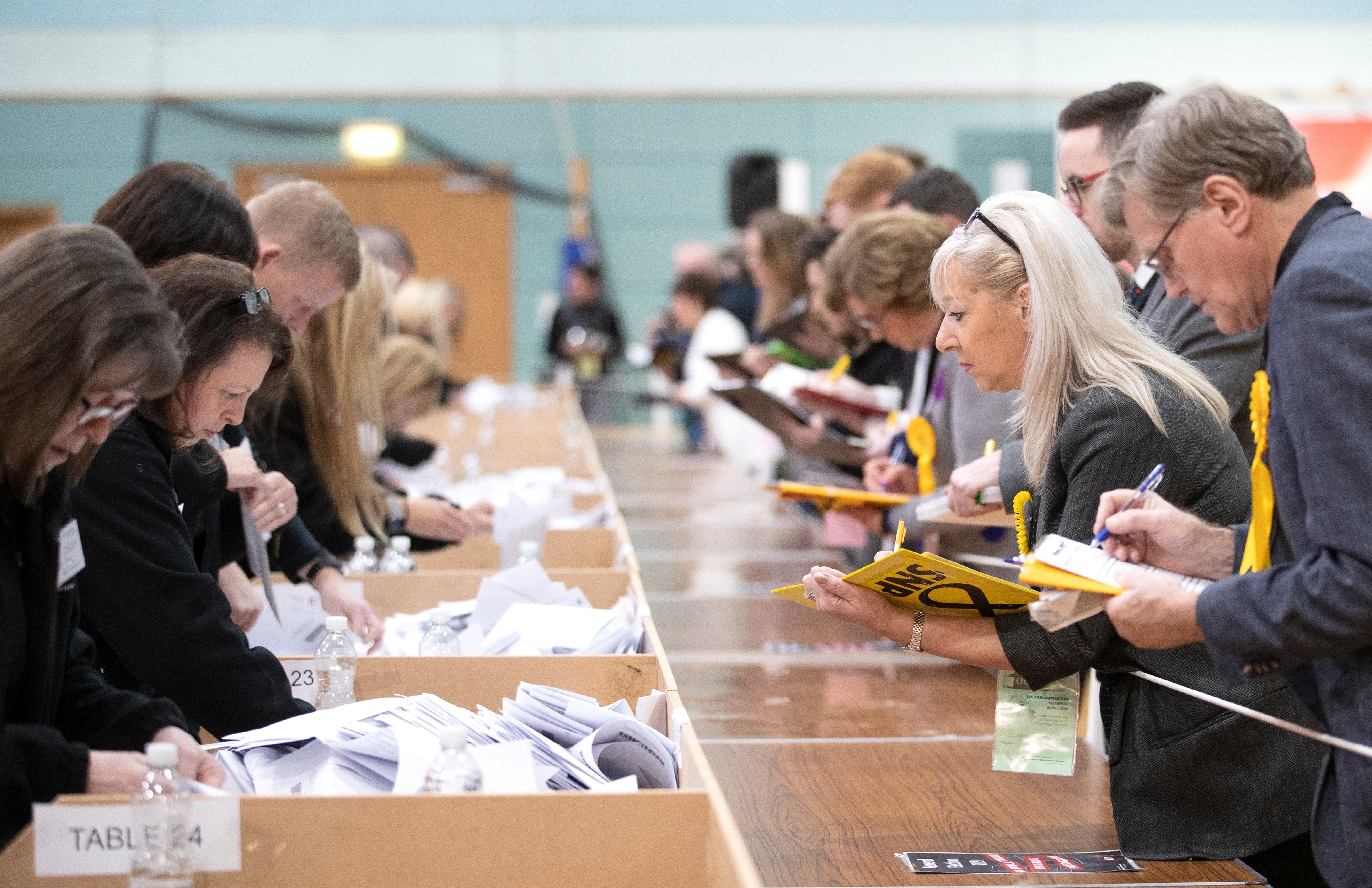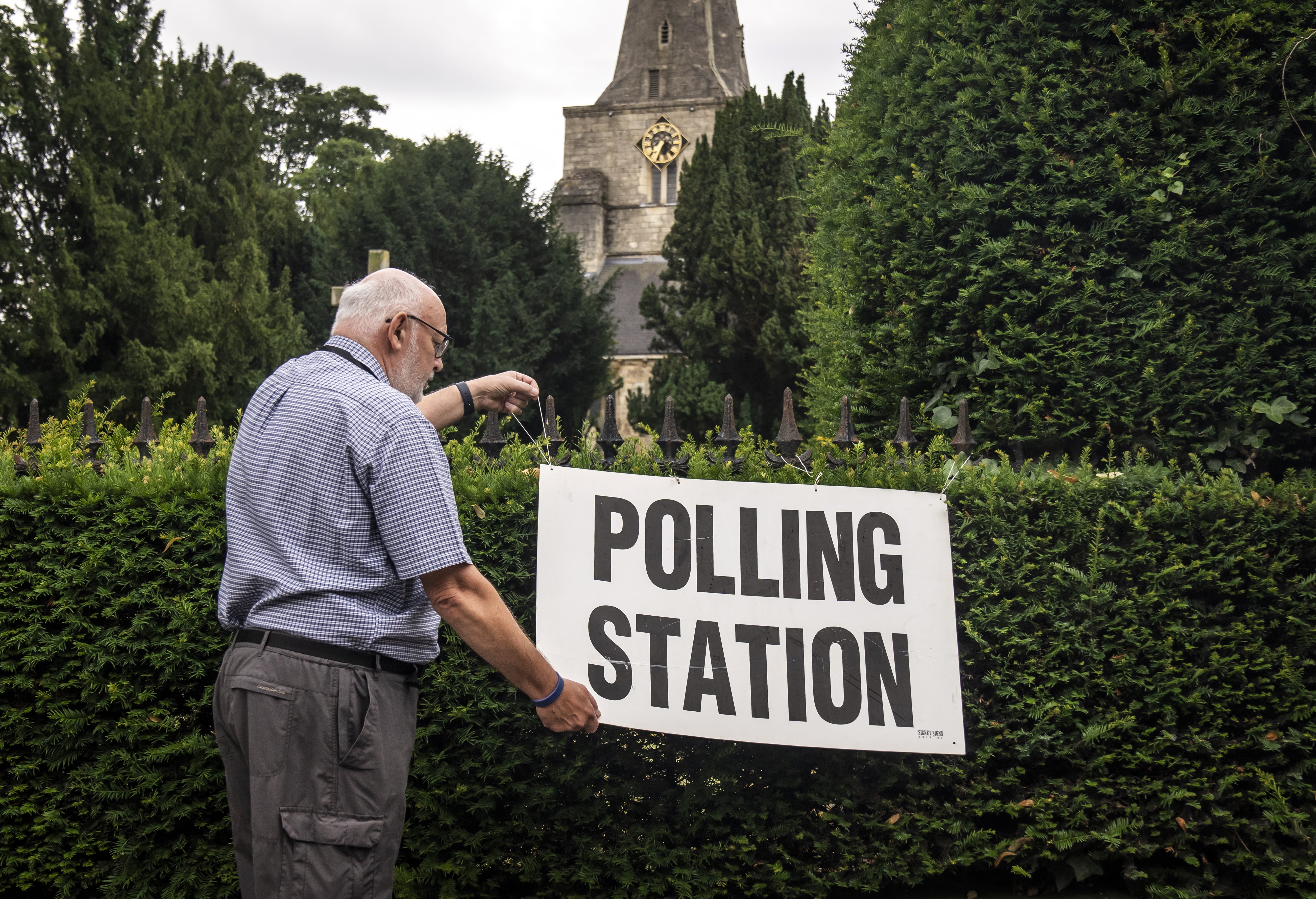How exit polls work and how much you can trust the result
Here’s what you need to know about exit polls and if you can trust them

Your support helps us to tell the story
From reproductive rights to climate change to Big Tech, The Independent is on the ground when the story is developing. Whether it's investigating the financials of Elon Musk's pro-Trump PAC or producing our latest documentary, 'The A Word', which shines a light on the American women fighting for reproductive rights, we know how important it is to parse out the facts from the messaging.
At such a critical moment in US history, we need reporters on the ground. Your donation allows us to keep sending journalists to speak to both sides of the story.
The Independent is trusted by Americans across the entire political spectrum. And unlike many other quality news outlets, we choose not to lock Americans out of our reporting and analysis with paywalls. We believe quality journalism should be available to everyone, paid for by those who can afford it.
Your support makes all the difference.The exit poll for this year’s General Election will be published just after polling stations close at 10pm on Thursday.
Exit polls take place at about 144 polling stations across the country, with tens of thousands of people asked to privately fill in a replica ballot as they leave, to get an indication of how they voted.
Typically, fieldworkers of the polling company Ipsos Mori descend on the same polling stations at every election, these have been chosen to be demographically representative of the country, with rural and urban seats, and weighted slightly in favour of marginal areas.
Polling expert Sir John Curtice told the PA news agency: “Wherever possible we go back to the same places as last time. The method of the exit poll is that you compare the results in the selected polling stations this time, with the results of the exit poll last time.”

How are exit polls carried out?
As well as the identical ballots, a replica ballot box is used as part of the process; Sir John said it’s done in this way to “maximise the confidentiality of people’s votes”.
He added: “To ask them to tell an interviewer, then they might be reluctant to do that, so you’re trying to minimise the level of refusal, which is always an issue.”
The number of people approached at a polling station is known as a “systematic sample”, Sir John said, and the size of the samples varies according to the registered electorate for that area.
How accurate are exit polls?
The accuracy of exit polls seems to have improved over time. In 1974, the first British exit poll predicted a Labour majority of 132, but the actual majority was three.
But in each of the past few elections the exit poll, which is published shortly after 10pm, has produced a very accurate projection of the actual result.
Sir John, professor of politics at Strathclyde University in Glasgow, said: “It’s tended to be relatively accurate, it’s not perfectly accurate, but there’s been a number of occasions in which it has ended up proving rather more accurate than what the opinion polls have been.
“Not that I’m suggesting that’s necessarily going to be the case this time but, on occasions like 2015 and 2017, the exit polls proved to give a better guide.”

What did the exit polls say in the last few general elections?
In 2015, the exit poll proved more accurate than opinion polls at the time, but it did not predict a Conservative majority.
More recently, in 2017 it correctly predicted the Conservatives would be the largest party, but the exit poll stopped short of saying there would be a hung Parliament.
In 2019, the exit poll predicted a Conservative majority of 86 seats, which was very close to the final 80-seat margin of victory.